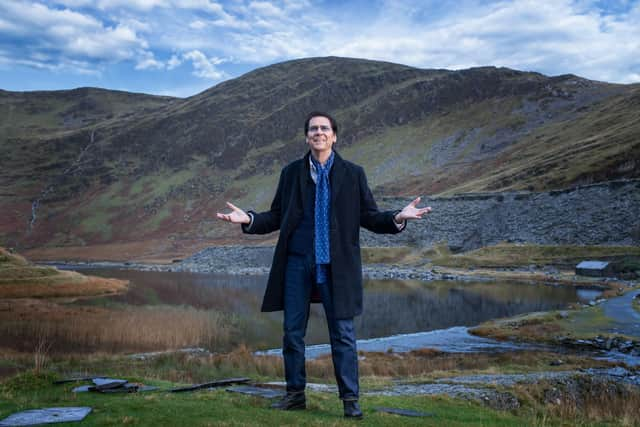Album reviews: Metallica | Shakin' Stevens | Rickie Lee Jones


Metallica: 72 Seasons (Blackened Recordings) ***
Shakin’ Stevens: Re-Set (BMG) **
Rickie Lee Jones: Pieces of Treasure (BMG Modern) ***
Post Coal Prom Queen: Music For First Contact (self-released) ****
Rock behemoths Metallica return with their first album in seven years, a 77-minute beast of a collection. With three quarters of the band hovering around their 60thbirthdays, 72 Seasons favours strength over agility, experience over experimentation.
Advertisement
Hide AdAdvertisement
Hide AdThe title plays to the inner and actual teenagers in their fanbase, denoting the first formative eighteen years of life, a time of learning, development, testing and reckoning, which clearly resonates with frontman James Hetfield as he prepares to enter his seventh decade – and emerges from a rehab “refresh” in 2019.
His own past traumas are the stuff of archetypal heavy metal alienation, adding a piquancy, even a poetry to the lyrics and his vocal performances which prove to be a consistent highlight across the album. “Give the boy a break…or he will break,” he appeals on Chasing Light. “Am I too far gone to save?” he roars and soars on Too Far Gone? while the chunky mantra If Darkness Had A Son and melodramatic bruiser Sleepwalk My Life Away occupy classic metal territory.


As for the music, the seven-minute title track is a primer for what follows – a mean intro resolves into Lars Ulrich’s solid battering ram drumming style and the gruff chug of guitar, which revs up to some fancy fretwork. The outright muscularity of Shadows Follow is a reminder that Metallica prefer to rock rather than roll - but then they kick off Screaming Suicide with some groovy boogie before Ulrich careers off like a greyhound out the traps.
Lux Æterna is the shortest track on the album, a spray of metal machine gun fire before they dive straight into the piledriving Crown of Barbed Wire with Hetfield spitting and snaring the gory lyrics in disgust. Heavy is the head for sure.
After over an hour in their oppressive company, they double down with eleven-minute closing track Inamorata, an anatomy of a love-hate relationship, which represents a more dynamic blood-letting, with Hetfield’s howl of “misery” soundtracked by quieter, plangent passages before a final blow-out.
Shakin’ Stevens follows up his acclaimed comeback album Echoes in Our Times with the diminishing returns of Re-Set, a blues and roots-influenced collection featuring songs inspired by his mother and the uncle he never knew but also a compassionate outlook on the world, including a shout-out to refugees on dusty blues lament Beyond the Illusion and a desire to tear it all down and start again on the closing title track.


Rickie Lee Jones, meanwhile, deconstructs some American standards in her idiosyncratic style on Pieces of Treasure, using oud as lead instrument on Nature Boy and vibraphone as the decorative backdrop to Just In Time. They Can’t Take That Away From Me receives a more conventional treatment but there is a youthful impishness in her delivery, while Kurt Weill’s September Song supplies her creaking meditation on love in later life.
Advertisement
Hide AdAdvertisement
Hide AdPost Coal Prom Queen is the latest musical alias of Glasgow-based Lily Higham and Edinburgh-based Gordon Johnstone, two science and technology geeks who bring a spirit of enquiry and possibility to their electronic musical realm. Following collaborative hip-hop album Music For Hypercapitalists, they present an operatic concept album about making contact with extra-terrestrial life, inspired by the writings of Chinese sci-fi author Cixin Liu, and first performed as a live theatrical extravaganza at last year’s Hidden Door festival in Edinburgh.
Even without the actors and the interactive referendum element of the show, this is an absorbing listen, thanks in part to soprano Stephanie Lamprea’s intoxicating ululation. Higham’s silky vocals blend well into the late night jazz vibes of Wheeling Through the Void, Calum Cummins’ squawking saxophone is a welcome gatecrasher and all their diverse flourishes come together on epic climax Sapere Aude.
CLASSICAL
Stone, Salt & Sky: GAIA Duo (Delphian) *****
A full album of relatively recent music for violin and cello may not seem the obvious instant buy, but only a few tracks into this debut disc by award-winning Scots-based duo GAIA – violinist Katrina Lee and cellist Alice Allen – and you’re transfixed. It’s not just the stimulating excitability of the music itself – mostly by women composers and fuelled variously by dizzy compulsion and intense textural imagery – but the duo’s own fiery confidence and tonal vocabulary that are so all-consuming. After the grittily contrasting Grotesque and Lullaby of Rebecca Clarke, the panoramic Celtic visions explored in Sally Beamish’s Stone, Salt and Sky, the disarming simplicity of Elizabeth Maconchy’s Duo (Theme and Variations), and GAIA’s own Monet-inspired soundscape Antibes, comes Duncan Strachan’s resourceful Thirteen Ways of Looking at a Blackbird, its mesmeric overlay of pre-recorded folksong offering fresh inducement to the very end. Ken Walton
FOLK
Iain Fraser: Kōterana (Capon Tree Music) ****
Urgently bowed strings, giving way to a wistful Gaelic air, open this album from fiddler Iain Fraser, tracing the epic wanderings of Reverend Norman McLeod, a disaffected Church of Scotland Minister from Assynt, who in 1817 led his flock from Ullapool, firstly to Nova Scotia, then to Australia and finally New Zealand – Kōterana is Maori for Scotland. This engagingly melodic suite sees Fraser lead a skeely crew including fiddlers such as Pete Clarke, Doug Dorward and Gillian Boucher, representing Scotland, Canada and New Zealand. They’re joined by such familiar Scottish folk figures as Seylan Baxter and Wendy Weatherby on cellos, pianist James Ross and piper Lorne MacDougall. Gentle interludes include Sunday Gathering, traditional reels skip along in Cape Breton style, while a poignant Gaelic emigrant song from Calum Alex MacMillan, MacDougall’s pipes and Freya Rae’s flute herald the triumphant arrival in New Zealand. Jim Gilchrist